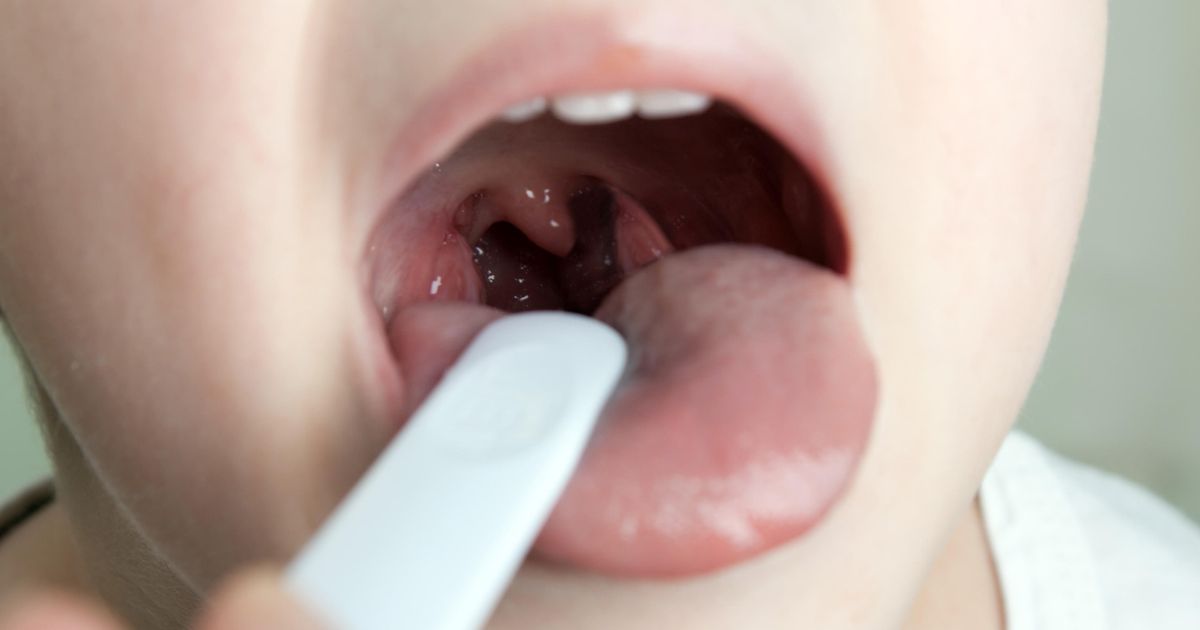Tonsillitis: Symptoms, Causes, And Treatments
Tonsillitis is an infection of the tonsils, which are the two masses of tissue located at the back of the throat on each side. Tonsils act as filters or goalies to prevent and trap germs from entering the airways and causing infection. They also produce antibiotics to kill bacteria. Tonsillitis occurs when too many germs and bacteria enter through the mouth and overwhelm the tonsils. As tonsillitis is highly contagious, it is especially prevalent in children.
Symptoms

Catching tonsillitis in its early stages is the best way to treat it. Symptoms may include a sore throat, bad breath, difficulty or pain when swallowing, chills, fever, earache, stomachache, headache, neck or jaw tenderness, swollen lymph nodes in the neck, red and swollen tonsils or tonsils with white and yellow spots on them, and a hoarse voice. Young children may also develop a lack of appetite, increased irritability, and excessive drooling. Symptoms of tonsillitis may accompany the common cold.
Next, learn what can cause tonsillitis to develop in the first place.
Causes

Tonsillitis is caused by either a viral or bacterial infection that enters the body through the mouth. It can be due to the common cold, which is a viral infection, or strep throat, which is a bacterial infection. The American Academy of Family Physicians estimated that up to thirty percent of cases are due to the strep bacteria; therefore, viral infections are the most common cause of tonsillitis. It can also be caused by the Epstein-Barr virus, which is the virus responsible for mononucleosis.
Explore the different types of tonsillitis now.
Types Of Tonsillitis

There are two main types of tonsillitis. Recurrent tonsillitis occurs when the infection strikes multiple times a year. Symptoms of recurrent tonsillitis are not usually severe and can be easily treated. Chronic Tonsillitis is characterized by infections lasting longer than two weeks. A person with chronic tonsillitis is infected more than a few times each year. They may also experience a persistent sore throat, tender lymph nodes in the neck, and halitosis, or bad breath.
Keep reading to find out when it is the appropriate time to seek treatment.
When To Seek Treatment

Many cases of tonsillitis go away on their own within ten days. Seek treatment if the tonsils become so swollen they impair breathing or swallowing. It is also a good idea to seek treatment if a fever higher than one hundred degrees Fahrenheit develops, if muscle weakness or neck stiffness is present, or if a sore throat that does not go away within two days develops. Tonsillitis is diagnosed by swabbing the back of the throat and sending the culture to a laboratory to detect the type of infection.
Uncover the various types of treatments available for this condition now.
Treatment Options

If tonsillitis is caused by the common cold or a virus, it may not require treatment. More severe cases involving a bacterial infection will need to be treated with an antibiotic or a tonsillectomy, which is when the tonsils are removed through a surgical procedure. A tonsillectomy is only recommended for people who experience chronic tonsillitis. It may also be necessary if the disease does not respond to medications or treatment. Intravenous fluids may be needed if tonsillitis prevents food or fluid intake. Pain medications may be prescribed to help reduce throat pain.
Discover natural remedies that patients can try that may help relieve symptoms.
Natural Remedies

Tonsillitis caused by viral infections or the common cold may be treated at home by getting plenty of rest, naturally treating throat pain, eating foods that boost the immune system, and using a vaporizer for easier breathing. If chewing or swallowing becomes painful, try a liquid diet of fruit smoothies, homemade vegetable juice, and organic chicken broth for a few days. Drinking licorice root tea with raw honey may be used to treat inflamed tonsils. Gargling with salt water is also effective at reducing symptoms.
Continue reading to learn the numerous complications associated with tonsillitis.
Complications Of Tonsillitis

Obstructive sleep apnea may develop as a result of chronic tonsillitis due to the swelling of the airways that prevent proper breathing. Tonsillar cellulitis occurs when a tonsillitis infection spreads to other areas of the body. A peritonsillar abscess occurs when there is a buildup of pus located behind the tonsils, which may require surgery or drainage. It is important to take a full round of antibiotics even if symptoms begin to reside early to make sure the entire infection is gone.
Find out how to prevent this condition from developing now.
Preventing Tonsillitis

The best way to treat tonsillitis is to prevent it from occurring in the first place. Since it is highly contagious, be sure to wash hands frequently and keep a distance from others who might be infected. Children who put their fingers in their mouths frequently are at an increased risk. Washing children’s hands often and discouraging putting fingers near the face will help. Taking a whole food, plant-based multivitamin and probiotics will help boost the immune system to fight an infection before it becomes severe.